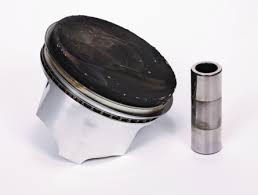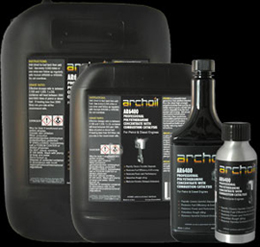
Engine & Fuel System Cleaning Machines – A Review
 by Andy Published on Friday, November 14th, 2014
by Andy Published on Friday, November 14th, 2014
I am regularly asked to comment on a particular engine (fuel system) cleaning system once featured on a popular automotive TV show.
Does the product work? Well, actually, yes, it does. It will clean the fuel system and help remove combustion (carbon) deposits. However, I am not convinced it is anything new or innovative except how it has been presented and released to the market. The product design, presentation, and choice of celebrity endorsement are pure genius. I don’t think they could have done it better or chosen a more suitable candidate to endorse the product. I am a fan of the unsaid celebrity, by the way.
Cleaning equipment that you connect directly to fuel systems of both petrol and diesel engines has been around for more than two decades. It was popular in the 1990s and at the start of this century. But its popularity declined for the simple reason that in-tank fuel cleaning technology had improved to the degree that such apparatus was no longer necessary, except under certain circumstances (i.e., engine running very poorly). Even rapid carbon removal (combustion and post-combustion, DPF, etc.) is now achievable through fuel-based chemistry. Patented fuel-borne catalyst technology for removing post-combustion carbon has been in use for some time and is very successful. As a result, this type of fuel system servicing became an unnecessary gimmick, in my opinion. The creators of this cleaning device made it sexy and credible again, and to a degree, a little more affordable, with a clean costing around £80, rather than the £100+ that was charged more than a decade ago.
In my view, the type and quality of cleaning chemistry are significantly more important than the method of administration. Adding a product directly to the fuel system—no matter who the manufacturer—might look impressive, but in most cases, it is not necessary.
And this is my point; adding a high-end fuel cleaning product to the fuel system can clean just as well.
Arguably, a high-end fuel cleaning product can, in some cases, work even better if you consider that it can clean the entire fuel system from the tank onwards, including the fuel filter. It is often the case that companies offering both types of cleaning products use the same chemistry, except that the direct-to-fuel rail method product is already mixed in with a base fuel.
Where rapid cleaning is required, many professional garages will add a full-strength fuel cleaner to an almost empty tank (i.e. 10 litres) and then let the engine idle for 15-30 minutes. This can provide an intense and rapid clean with minimal risk because the engine is not under any load.
Of course, supporters of these products will point out that there are plenty of good reviews of these systems. That is very true. But similarly, there are many good reviews for high-end, in-tank fuel system cleaning products, too. I could bore you all day with the many hundreds we have accumulated, with some customers reporting a profound change in engine running and performance. And they aren’t wrong. If there are fuel system and carbon deposits, both methods will produce tangible results that the customer will feel. If there are no discernible deposits, then neither method will make a difference.
Another question is, “Will this device remove deposits from the rear of intake valves on direct injection engines, such as those in BMWs, Audis, Minis, etc.?” No, but neither will in-tank cleaners. Both methods might remove a few of these deposits, but not enough to consider them successful. This is the new challenge manufacturers and aftermarket solution providers face – creating effective intake valve cleaning by administering detergents directly through the air inlet. But this is a conversation for another day.
Conclusion: It works, but are you getting more for your money than you would with a much less costly, high-strength professional in-tank cleaner? My short answer? No.







 categories
categories
First of all Terraclean is a fuel based cleaner and the name Terraclean is a brand not just one service . With regards to egr turbo and dpf cleans then they also offer this service using another tool and other fluids which if you look at the before and after work better than anything else on the market . Lots of other solvent based cleaners are now coming out the wood work claiming to be just like Terraclean this shows Terraclean is still leading the way in this area and are still yet to have anyone match what they can do .
Sometimes I am in awe of the naivety in this market.
1. Please read the article again and previous comment responses as this is the last time I will clarify this particular point. I AM NOT REVIEWING TERACLEAN AS A BRAND OR ALL OF ITS SERVICES! I am referring to devices THAT CONNECT TO THE FUEL SYSTEM AND DELIVER A CLEANING PROCESS. I cannot possibly be clearer.
2. I am comparing fuel cleaning devices to high end fuel based cleaners and not something you pick up from your local motor factors for £3.99. High end cleaners use modern detergent packages. To state they are “solvent” based is incorrect. I would recommend referring to research papers on the subject rather than requoting sales propaganda.
3. Fuel based cleaner is simply a synonym for fuel + detergent(s). Guess what occurs when you add a compatible detergent package, dispersant, lubricant, fuel borne catalyst, stabiliser etc. to a fuel? The delivery agent/base is irrelevant in the context of this argument. Again, research fuel cleaning chemistry and technology.
4. “Works better than anything else in the market”. Rhetorical question but what exactly is this service providing that others don’t? Modern detergent technology means that fuel system cleaning is simple and thorough. Furthermore it is easily accessible, affordable and can be achieved in only a few miles of driving. Results are irrefutable. Please enlighten our readers to precisely what we are missing other than higher costs for the consumer and larger margins for the garages?
Your comments are interesting however not remotely factual. If you are going to comment on T****clean might I suggest having one of the services done or speaking to T****clean and having it explained.
Hi, I can see from your email that you work for the company that owns and distributes this service. I would have hoped for a more professional response. To clarify, I have:
1. Already spoken to a Terraclean representative
2. Seen the service in action
3. Witnessed the before and after
4. Spoken to dealers that use the service (we also supply them products)
5. Spoken to at least two dozen customers that have used the service.
I believe that I have provided a fair representation. If you feel I have been remiss and missed important points then I am willing to offer you the opportunity to clarify. However, your first response is neither professional nor courteous and I ask that you consider this in any future response.
So the best we can do is use quality fuel with additional additives, a fuel modifier (AR6200) and regular use of a fuel system cleaner (AR6400) to minimise build-up.
Keeping the system clean with high strength cleaners every few thousand miles or a quality fuel conditioner/catalyst with every tank of fuel.
Interesting article, however, Terraclean (via their Facebook page) state they *can* clean Direct Injection engines.
Sure, but that is not with the standard fuel based cleaning system that I was referring to in the article. This is a product that is sprayed into the air intake, similar to other solvent based intake cleaners. However, results are variable with this technique. I would recommend reading the article here https://fueltechexperts.com/turbo-fuel-stratified-injection-tfsi-direct-port-injection-carbon-build-up-problem/.
Many great minds are working on this problem and by far the most significant challenge is the active chemical nature of the build-up and degree of lube oil contamination. Fuel based hydrocarbons are relatively simple to remove through polar solvents and even water based surfactants. Carbonaceous build-up formed from lubricating engine oil is an entirely different animal because it creates incredibly hard layers that are not only extremely difficult to remove, but difficult to remove safely.
I had a terraclean done to my tdi and then took the EGR off to look at it afterwards. It did nothing to clean it. waste of money
Hi, it takes a significant amount of dedicated fuel borne catalyst technology to have any chance of cleaning the EGR through the fuel system. The issue is that this type of technology requires heat so although it can work very well on turbo chargers, CAT’s, DPF’s etc., it is unlikely to help the EGR because the recirculating exhaust gases will have cooled down too much. Also, if the build-up is primarily lube oil rather than fuel based carbons then it is VERY difficult to remove even through the use of aggressive solvents into the intake.
I also had sticking veins on my turbo and terraclean did nothing for that. For that i used another product directly on to the exhaust side of the turbo to fix that issue
Yes, same problem. If the build-up is engine oil related then it is virtually impossible to remove via fuel system cleaning.